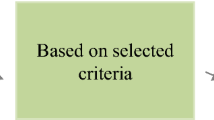Abstract
This position paper introduces a Smart Innovation Environment for experimentation related to digital transformation projects, for the consolidation of a proposed “Digital Engineer” skill profile (with a business-oriented facet labelled as “Digital Innovator”). In the Internet of Things era, this profile implies the ability to perform both digital design and engineering activities, to semantically bridge multiple layers of abstraction and specificity – from business analysis down to cyber-physical engineering. In the paper’s proposal, this integration is enabled by conceptual modelling methods and interoperable modelling tools, tailored to support the creation of Digital Twins for innovative digital business models. The architecture of the proposed environment is guided by a Design Research perspective – i.e., it is a treatment to an education “design problem” regarding the Digital Engineer skill profile in the IoT era. The proposed environment encompasses workspaces and toolkits are currently evaluated in “innovation corners” deployed across the OMiLAB ecosystem.
Access this chapter
Tax calculation will be finalised at checkout
Purchases are for personal use only
Similar content being viewed by others
References
Walczowski, L.T., Dimon, K.R., Waller, W.: A digital engineering curriculum for the new millennium. Int. J. Electr. Eng. Educ. 37(1), 108–117 (2000)
The OMiLAB network nodes. https://www.omilab.org/nodes/nodes.html. Accessed 29 Apr 2020
Bork, D., Buchmann, R., Karagiannis, D., Lee, M., Miron, E.T.: An open platform for modeling method conceptualization: the OMiLAB digital ecosystem. Commun. Assoc. Inf. Syst. 44, 673–697 (2019). https://doi.org/10.17705/1CAIS.04432
Wieringa, Roel J.: Design Science Methodology for Information Systems and Software Engineering. Springer, Heidelberg (2014). https://doi.org/10.1007/978-3-662-43839-8
Holland, D., Crompton, J.: The Future Belongs to the Digital Engineer. XLIBRIS, Bloomington (2013)
Buchmann, R.A., Ghiran, A.M., Döller, V., Karagiannis, D.: Conceptual modeling education as a design problem. Complex Syst. Inform. Model. Q. 21, 21–33 (2019). https://doi.org/10.7250/csimq.2019-21.02
Boschert, S., Heinrich, C., Rosen, R.: Next generation digital twin. In: Proceedings of TMCE 2018, pp. 209–217. TU Delft (2018)
Karagiannis, D., Kühn, H.: Metamodelling platforms. In: Bauknecht, K., Tjoa, A.M., Quirchmayr, G. (eds.) EC-Web 2002. LNCS, vol. 2455, p. 182. Springer, Heidelberg (2002). https://doi.org/10.1007/3-540-45705-4_19
Karagiannis, D., Burzynski, P., Utz, W., Buchmann, R.: A metamodeling approach to support the engineering of modeling method requirements. In: Proceedings of RE 2019, Jeju Island, Korea, pp. 199–210. IEEE (2019). https://doi.org/10.1109/RE.2019.00030
The OLIVE Web integration platform. https://www.adoxx.org/live/olive. Accessed 29 Apr 2020
BOC GmbH, The ADOxx metamodelling platform. http://www.adoxx.org. Accessed 29 Apr 2020
OMiLAB scientific events. https://austria.omilab.org/psm/events. Accessed 29 Apr 2020
The BEE-UP official page. http://austria.omilab.org/psm/content/bee-up/info. Accessed 29 Apr 2020
Karagiannis, D., Buchmann, R.A., Burzynski, P., Reimer, U., Walch, M.: Fundamental conceptual modeling languages in OMiLAB. Domain-Specific Conceptual Modeling, pp. 3–30. Springer, Cham (2016). https://doi.org/10.1007/978-3-319-39417-6_1
Karagiannis, D., Buchmann, R.A.: Linked open models – extending linked open data with conceptual model information. Inf. Syst. 56, 174–197 (2016). https://doi.org/10.1016/j.is.2015.10.001
Institute of Design Stanford, Get started with Design Thinking. https://dschool.stanford.edu/resources/getting-started-with-design-thinking. Accessed 29 Apr 2020
SAP SE, SAP Scenes. https://experience.sap.com/designservices/resources/scenes. Accessed 29 Apr 2020
Miron, E.-T., Muck, C., Karagiannis, D., Götzinger, D.: Transforming storyboards into diagrammatic models. In: Chapman, P., Stapleton, G., Moktefi, A., Perez-Kriz, S., Bellucci, F. (eds.) Diagrams 2018. LNCS (LNAI), vol. 10871, pp. 770–773. Springer, Cham (2018). https://doi.org/10.1007/978-3-319-91376-6_78
The Scene2Model official page. https://austria.omilab.org/psm/content/scene2model/info. Accessed 29 Apr 2020
Karagiannis, D.: Conceptual modelling methods: the AMME agile engineering approach. In: Silaghi, G.C., Buchmann, R.A., Boja, C. (eds.) IE 2016. LNBIP, vol. 273, pp. 3–19. Springer, Cham (2018). https://doi.org/10.1007/978-3-319-73459-0_1
Walch, M., Karagiannis, D.: How to connect design thinking and cyber-physical systems: the s*IoT conceptual modelling approach. In: Proceedings of HICSS 2019, pp. 7242–7251. University of Hawaii (2019)
Nicolaescu, S.S., et al.: Human capital evaluation in knowledge-based organizations based on big data analytics. Future Gener. Comput. Syst. 111, 654–667 (2020)
Molina Gutiérrez, A., et al.: Open innovation laboratory for rapid realisation of sensing, smart and sustainable products: motives, concepts and uses in higher education. In: Camarinha-Matos, L.M., Afsarmanesh, H., Rezgui, Y. (eds.) PRO-VE 2018. IAICT, vol. 534, pp. 156–163. Springer, Cham (2018). https://doi.org/10.1007/978-3-319-99127-6_14
Fichman, R.G., Dos Santos, B.L., Zheng, Z.: Digital innovation as a fundamental and powerful concept in information systems curricumul. MIS Q. 38(2), 329–353 (2014)
Rabe, M., Kühn, A., Dumitrescu, R., Mittag, T., Schneider, M., Gausemeier, J.: Impact of smart services to current value networks. J. Mech. Eng. 13(2), 10–20 (2017)
Andriankaja, H., Boucher, X., Medini, K.: Method to design integrated product-service systems based on the extended functional analysis approach. CIRP J. Manuf. Sci. Technol. 21, 120–139 (2018)
Osterwalder, A., Pigneur, Y., Bernarda, G., Smith, A.: Value Proposition Design: How to Create Products and Services Customers Want. Wiley, Hoboken (2014)
Rozanec, J.M., et al.: Towards actionable cognitive digital twins for manufacturing. In: International Workshop on Semantic Digital Twins, co-located with ESWC 2020, CEUR-WS 2615, paper 5 (2020)
Song, J., Choe, Y., Lee, M.: Application of probabilistic process model for smart factory systems. In: Douligeris, C., Karagiannis, D., Apostolou, D. (eds.) KSEM 2019. LNCS (LNAI), vol. 11776, pp. 25–36. Springer, Cham (2019). https://doi.org/10.1007/978-3-030-29563-9_3
DIGIFOF project – official page. https://digifof.eu/. Accessed 29 Apr 2020
Acknowledgement
The proposed innovation environment is used by academic as well as industrial partners in the ERASMUS+ KA2 project no. 601089-EPP-1-2018-1-RO-EPPKA2-KA (https://www.digifof.eu/).
Author information
Authors and Affiliations
Corresponding author
Editor information
Editors and Affiliations
Rights and permissions
Copyright information
© 2020 IFIP International Federation for Information Processing
About this paper
Cite this paper
Karagiannis, D. et al. (2020). OMiLAB: A Smart Innovation Environment for Digital Engineers. In: Camarinha-Matos, L.M., Afsarmanesh, H., Ortiz, A. (eds) Boosting Collaborative Networks 4.0. PRO-VE 2020. IFIP Advances in Information and Communication Technology, vol 598. Springer, Cham. https://doi.org/10.1007/978-3-030-62412-5_23
Download citation
DOI: https://doi.org/10.1007/978-3-030-62412-5_23
Published:
Publisher Name: Springer, Cham
Print ISBN: 978-3-030-62411-8
Online ISBN: 978-3-030-62412-5
eBook Packages: Computer ScienceComputer Science (R0)





